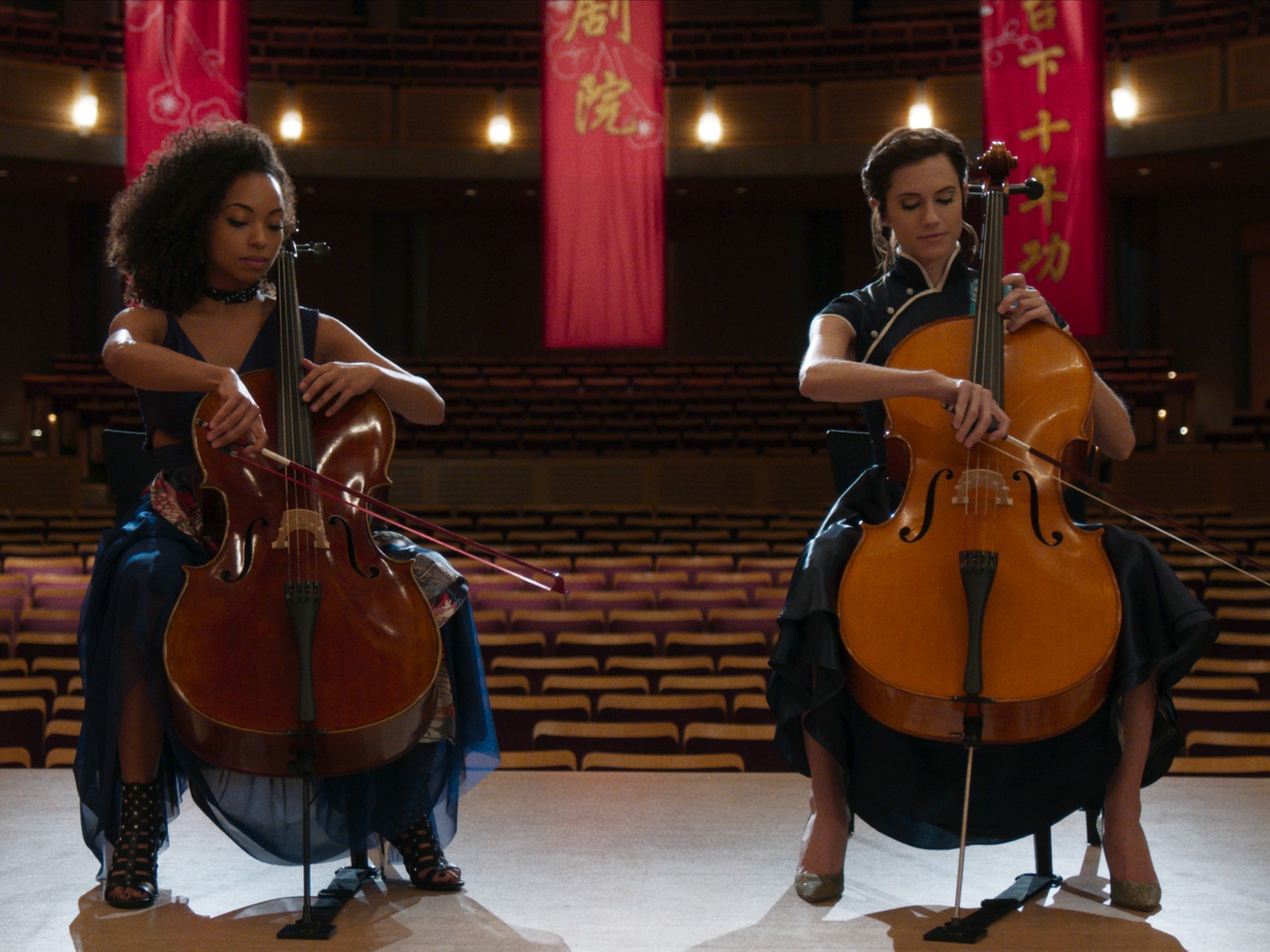Netflix has become the gold standard for streaming original content. Eighty original movies were released in 2018, and just under 30 have already been released this year. Along with the quantity of movies on their roster, Netflix has always worked to ensure that their films are of the utmost quality, but “The Perfection” fails to meet their standards.
“The Perfection” is by no means a terrible movie. In fact, the film features its share of successful moments for anyone craving a gory and twisted thriller. But despite the film’s more rewarding facets, “The Perfection” houses enough flaws to render a relatively low ceiling for the quality of the movie.
Here is a pros and cons list that distinguishes the film’s most and least successful features and how they confine “The Perfection” to its role as an average thriller flick. Spoilers are to follow.
PRO: Cinematography
The film heavily relies on cinematography. Eerie close-up shots of the main character, Charlotte, are continuously intermingled with images of her traumatizing, yet mysterious, past. This technique is successful in capturing the necessary tension for a thriller flick to prosper, but it also causes the viewer to question Charlotte’s true motives.
“The Perfection” is a mystery movie too, as it depicts Charlotte’s daunting voyage back into a top-tier community of musicians without explicitly revealing any details about her true intentions.
The cinematic blend of present-day shots and disturbing images from Charlotte’s past — like her head being shaven for some sort of electrostimulation and her slitting her on wrist in a bathtub — merges the film’s thriller and mystery components together into a jostling, yet enticing, result.
PRO: Gore Moments
Excessive gore may not be necessary for a great thriller, but when it’s done the right way, it can have tremendous effects on the audience. Some argue that “The Perfection” has too many gross-out moments, which may be true, but the overwhelming success of a few particular scenes helps the filmmakers escape blame for the less successful, over-the-top moments.
The most mentally jarring scene in the movie takes place the morning after Lizzie and Charlotte meet. After the two musicians hook up, Lizzie awakens the next morning with an excruciating hangover. Charlotte gives her ibuprofen (or so Lizzie thinks) before their bus ride through rural China back to the prestigious music school they both attended as children.
Lizzie’s nausea persists through breakfast, and she begins to feel feverish on the bus. After Charlotte gives her another pill, Lizzie’s condition takes a nosedive, and she begins to puke uncontrollably. After Charlotte startlingly points out that there are bugs swarming around in her puke, the two get kicked off the bus and are forced to walk the rest of the way.
Charlotte has drugged Lizzie with so many hallucinogens that she can visualize bugs crawling under her skin. This ultimately leads Lizzie to cut off her own hand, upon Charlotte’s advice. The abject horror of the scene is enough to make anyone’s skin crawl. Upon the reveal that Charlotte planned out the whole event, the scene becomes even more discomforting to the audience.
CON: Dialogue
Many of the interactions between characters in “The Perfection” feel forced — like the filmmakers were dead-set on the 90-minute runtime and refused to allocate any more time to character development. Maybe the problem isn’t the characters themselves, but rather the dialogue that is meant to progress them.
For example, Lizzie and Charlotte’s first interaction begins with them reminiscing over their brief encounters when attending music school together a decade prior. The conversation then segues into the two judging a competition between youth cellists, during which Lizzie tells Charlotte about an affair going on between two of the young participants’ parents.
If you think this sounds like an odd conversation for two judges to be having during a competition, you’re right. But it gets worse: Lizzie then leans over to Charlotte and whispers that watching the parents flirt “makes [her] wet.”
For two people who just reacquainted for the first time since childhood, this piece of dialogue feels unseemly. Unfortunately, this is only one of “The Perfection’s” multiple examples of clunky dialogue, which becomes even more discomforting and traumatic as the film progresses.
CON: Logic
The logic upon which this movie relies makes less and less sense the more you analyze Charlotte’s plan. Essentially, her ultimate goal is to seek revenge upon an abusive music teacher, who, over the past 10 years of Charlotte’s absence from the school, has taken Lizzie under his wing.
Charlotte is afraid that Lizzie has also been abused by the teacher and brainwashed into repressing these memories (Charlotte remembers because she left the music school at such a young age). So, Charlotte’s plan for revenge is to drug Lizzie with hallucinogens and convince her to cut off her own hand, of course.
Charlotte’s reasoning for the plan seems pretty sound at first. She immediately tells Lizzie after her hand gets cut off that this is the only way for her to see just how cynical their music teacher is. As a result, Lizzie is kicked out of the school, as she is no longer able to play cello without her right hand.
Yet, it’s hard to believe that the only way for Lizzie to learn was through a mutilation that took away her one passion: music. Prior to this moment, Charlotte had plenty of opportunities to target the music teacher specifically, so it feels like the filmmakers didn’t think it through.
Charlotte and Lizzie’s relationship is genuine throughout the movie, so it feels counterintuitive for Charlotte to use Lizzie as a torturable pawn to seek revenge.
















